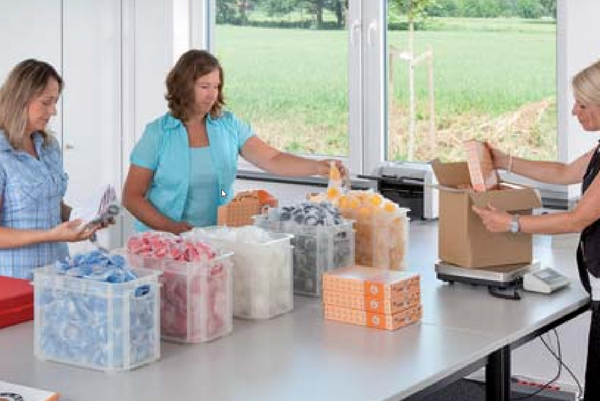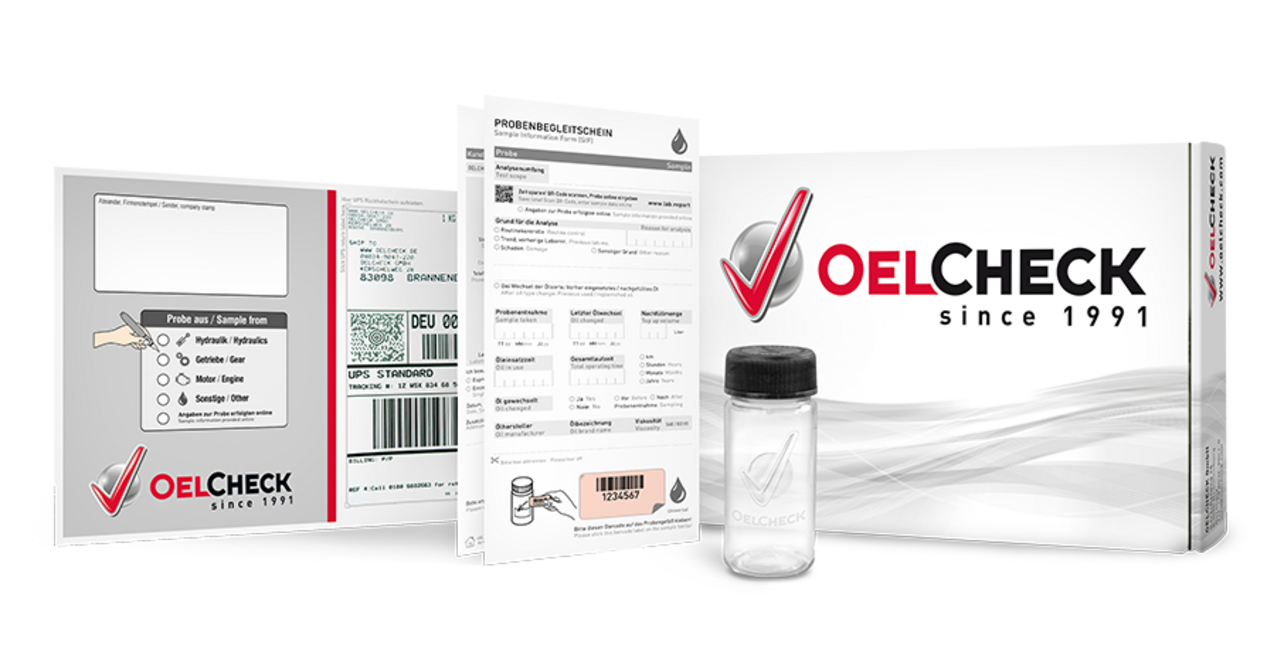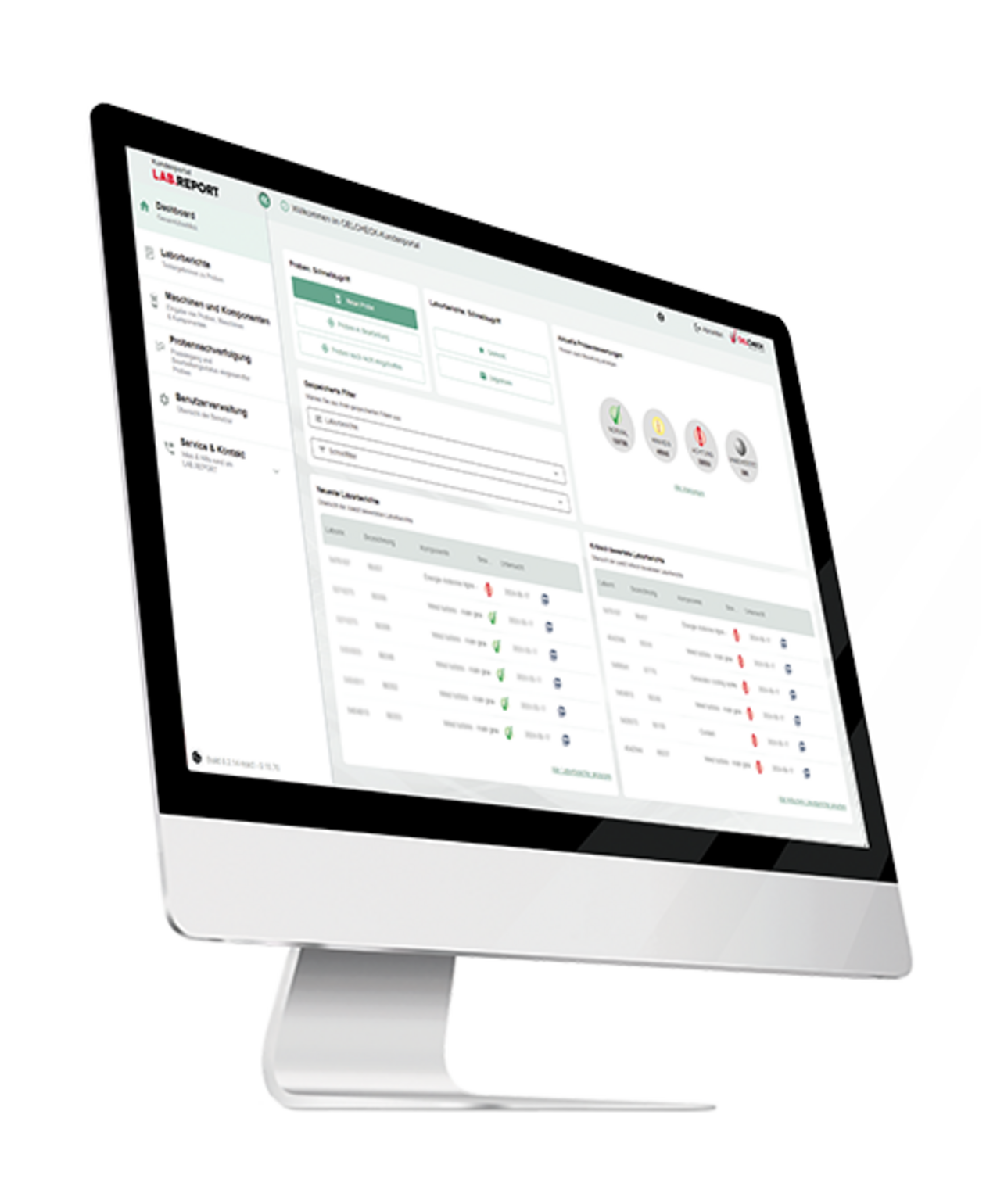Can values change if the oil samples are stored for a long period of time?
When our gears were last inspected, about three months ago, as always, we took oil samples. Unfortunately, however, we forgot to send them straight to OELCHECK. Will the analysis results still be representative if we send the samples off for analysis today? Can values, which provide meaningful information on the condition of the gears and lubricants, change if the oil samples are stored for a long period of time?
OELCHECK answers:
In principle, we can also examine oil samples that were taken a long time ago. Storing oil samples for a long period of time doesn‘t significantly affect analysis data. However, the analysis values will only reflect the conditions at the time when the sample was taken. Only you can decide whether this „obsolete“ information, which only partially describes the real condition of the lubricant used and the gears, is still useful. The oil and the elements that it contains are constantly changing. A sample only provides information about a particular moment in time.

Prompt tests provide representative results
Wear metals, impurities, oil additives and the condition of the oil don‘t change when stored in the original OELCHECK sample container at normal ambient temperature. However, the more time that elapses from the point that the sample is taken to the point where the test is carried out, the more significantly the condition of the sample can deviate from the condition of the lubricant currently being used. Therefore, samples should always be sent to our laboratory as quickly as possible. If, however, you forget to send them, an experienced tribologist can estimate which values will have changed in the meantime in current operations, if previous trend analyses are available.
In the case of a gear with oil change intervals of more than 40,000 operating hours and 6-monthly oil samples, one or two days won‘t make a difference. However, in the case of a biogas engine that operates around the clock and whose oil must be changed after less than 600 operating hours (25 days), forgetting to send an oil sample could cause an engine failure. Therefore, make sure that samples reach the OELCHECK laboratory no later than a week after they have been taken. If a sample has been lying around for several weeks or even months we would not recommend sending it for testing. The information that it contains would no longer reflect current operations.
Only if a sample is examined promptly can you benefit from the invaluable advantages of our lubricant analyses, carry out oil changes based on the condition of the oil and detect possible damage in advance.
Special OELCHECK sample containers for all lubricants
So that you receive meaningful results based on the oil samples that you send in, follow our guidelines on how to take samples. You will find them under „Take & send samples“ on www.oelcheck.de. Please only use the pre-paid OELCHECK sample containers, which were specially developed for lubricant samples. They comprise the relevant full scope of the test and a meaningful diagnosis, depending on the colour of the lid.
The empty containers and their lids are packaged individually. That way, we can ensure that the containers remain as pure as possible. Contamination of samples, for example with dust particles or moisture, is impossible if the packaging is not opened until on site. However, not even our sturdy sample container made from PET can fully protect the lubricant sample from environmental influences forever. If you leave a sample in the sunlight for a long time, the colour of the oil could change. Antioxidants in turbine oils can make the oil look violet after a few days and light hydraulic oils turn darker under the effects of light. However, with the exception of the colour, the typical characteristics ascertained don‘t change. If the oil sample is exposed to greater fluctuations in temperature, the water content of some oil types can also change during storage time.
Our specially designed PET sample containers are clean and temperature-stable, can be sealed firmly and have proven themselves on millions of occasions. However, even they‘re not suitable for every type of lubricant. Refrigeration compressor oils, for example, almost always contain residual gaseous refrigerating agents. For these, we offer gas-tight sample bottles made from glass with a metal cover (see pg. 3 of this edition). They can withstand the pressure of the gaseous refrigerating agents and ensure that even tricky samples make it to the OELCHECK laboratory safely. Also for transformer and insulating oils, special gas-tight glass syringes and aluminium containers (see ÖlChecker Winter 2011) are integral parts of the relevant analysis kit.
Conclusion: Avoid storing samples for any unnecessary length of time
Always send lubricant samples to our laboratory as quickly as possible! They are tested and assessed by the end of the following working day if they reach us by 12.00 p.m.
The analysis values that we measure will not change drastically in storage. However, if several days or weeks elapse between the point when the sample was taken and the time when it is tested, the analysis values could deviate from the current condition of the lubricant still being used.
By sending your samples in good time, you are actively helping to ensure that you benefit as much as possible from the OELCHECK laboratory‘s speed and the unbeatable advantages of OELCHECK lubricant analyses.
ÖlChecker Spring 2012, page 8



